It’s an honor to have The Doctor Was A Woman recognized by Foreword Review

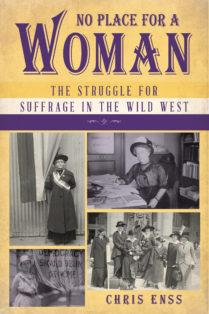
The 19thAmendment to the U.S. Constitution, giving women the right to vote in America, was first proposed and rejected in 1878 , then reintroduced every year for the next 41 years. In 1984, Mississippi became the last state to ratify it.
Wyoming was the first U.S. state to give women the right to vote. Women there had been voting since 1869 in Wyoming Territory, which only agreed to join the Union if this right was maintained. Congress threatened to deny statehood over the issue, but Wyoming wouldn’t back down.
The original 1776 constitution of New Jersey gave “all inhabitants” who were “worth 50 pounds” the right to vote. This was vague, so in 1797, women with 50 pounds or more to their names were explicitly allowed to vote. This right only applied to single women. Married women did not count since their husbands legally controlled all the property they owned. In 1807, the law was changed once again, restricting the vote to only free white male citizens.
Not all suffragists were women, and not all anti-suffragists were men. Numerous men were committed suffragists, and some were imprisoned and force-fed just like their female comrades. Many prominent women also proclaimed disapproval for the suffrage movement, arguing that women did not want to vote and that it would mean competition with men rather than cooperation.
Susan B. Anthony (and 15 other women) voted illegally in the presidential election of 1872.
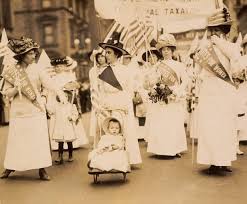
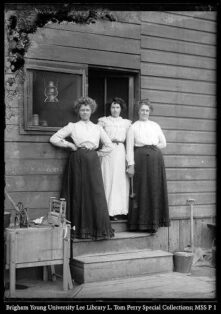
People in the American West have been using the mail-order system to find a spouse since Russell, Majors, and Waddell created the Pony Express. Ads were placed in the newspaper Matrimonial News and interested parties would send a letter to the ad they found most appealing. The following are a few ads from the May 1873 edition of the publication.
“Young lady of good family and education would like to correspond with some gentleman of means, one who would be willing to take her without a dollar, as she has nothing to offer but herself.”
“I am 33 years of age and as regards looks can average with most men. I am looking for a lady to make her my wife as I am heartily tired of bachelor life. I desire a lady not over 28 or 30 years of age, not ugly, well educated and musical. Nationality makes no difference, only I prefer not to have a lady of Irish birth. She must have at least $20,000.
“A lady, 23, tall, fair and good looking, without means, would like to hear from a gentleman of position wanting a wife. She is well educated, accomplished, amiable, and affectionate.”
“A bachelor of 40, good appearance and substantial means, wants a wife. She must be under 30, amiable and musical.”
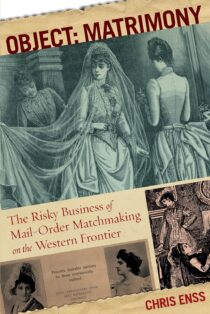
I'm looking forward to hearing from you! Please fill out this form and I will get in touch with you if you are the winner.
Join my email news list to enter the giveaway.
"*" indicates required fields
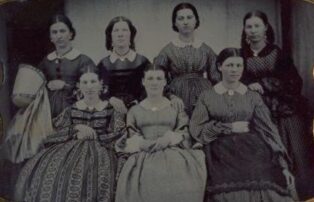
In the Old West, men and women in hopes of finding a companion placed advertisements in publications specifically designed for lonely hearts. Here are a few of those inspired ads from 1887.
“A few lady correspondents wanted by a bashful man of 36, of fair complexion. 5 feet 5 inches tall, weight 130 pounds. Would prefer a brunette of fair form about five feet, between 18 and 25 years of age. Object, improvement, and if suited matrimony.”
“Wanted to correspond with a young lady matrimonially inclined who would make a young man a good wife: am of good standing and good family, strictly temperate, a professional man and will make a kind husband.”
“I am fond of fun, age 18, height 5 feet 5 inches, weight 140 pounds, have auburn hair, dark eyes; I want a gentleman correspondent from 20 to 25.”
“I am fat, fair, and plan on losing no weight. I’m 48 years old, 5 feet high. Am a No. 1 lady, well fixed with no encumbrances: am in business in city, but want a partner who lives in the West. Want an energetic man that has some means, not under 40 years of age and weight not less than 180. Of good habits. A Christian gentleman preferred.”

I'm looking forward to hearing from you! Please fill out this form and I will get in touch with you if you are the winner.
Join my email news list to enter the giveaway.
"*" indicates required fields
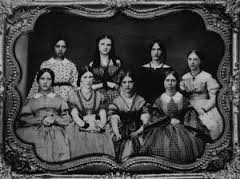
Helping eligible men and women find one another, correspond, and marry was the main goal of the publication The New Plan. Published in Kansas City, Missouri, the magazine’s purpose was to unite lonely hearts, with various monetary and social backgrounds who were unable to find a desirable life partner. Here are few of those ads written in 1911 and 1912.
#2012: “Would like to get married, because I’m lonesome. Am considered rather good looking and of a lovable disposition. Age, 35; 5 feet 5 inches; weight 145; hazel eyes; brown hair; American; occupation, stenographer and bookkeeper. Will inherit a few thousand. Will answer all letters.”
#1672: “Society has no charms for me; prefer a quiet life. Am an American lady, with common school education; well thought of an respected; age, 25; height 5 feet 9 inches; weight, 155; blue eyes; light hair. Have means of $3,000. Wish correspondence with good natured, honest, industrious man.”
#2061: “Dear old men, here is your chance to get a true loving companion. I am a widow by death; age 69 years, but don’t look or feel or act over 40; always in good humor, very loving and kind; a good housekeeper, weight 104, height 5 feet 2 inches, blue eyes, brown hair, nationality German; would like to meet some congenial gentlemen near my own age, with means enough to make a good home.”
I'm looking forward to hearing from you! Please fill out this form and I will get in touch with you if you are the winner.
Join my email news list to enter the giveaway.
"*" indicates required fields

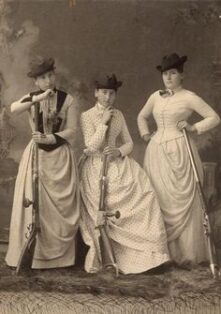
Contrary to popular belief, men who advertised for a wife in the publication Matrimonial News in 1859 were not looking for someone who could cook or clean they were looking for someone who was musically inclined. They missed their homes in the east and were longing for refinement. Women who played a musical instrument were most desirable.
I have a good friend who married a woman he met by answering an ad in newspaper. Her housekeeping technique could only be described as, “It appears as though there was a struggle.” She played a mean cello, however. They’ve been married for more than twenty years.
I hope these three sisters who advertised in Matrimonial News in 1892 were lucky enough to find the man of their dreams.
“We are three jolly and lively girls, all of us of the brunette order, having dark brown hair and dark eyes, we are all the same age and are quite good friends, 29 years old, of good form; would like to marry three friends or three brothers – we don’t want to be too far apart: want correspondence with gentlemen fond of riding horses and attending the theater.”

I'm looking forward to hearing from you! Please fill out this form and I will get in touch with you if you are the winner.
Join my email news list to enter the giveaway.
"*" indicates required fields
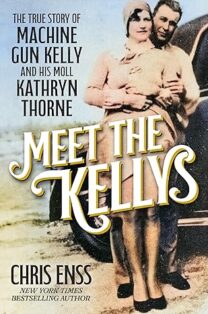
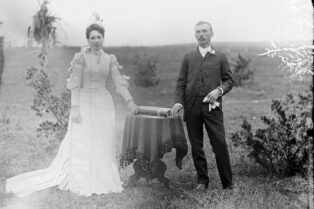
There’s an old cowboy expression that goes, “There’s only two things I’m afraid of, a decent woman an’ bein’ left afoot.” Being afraid of a decent woman didn’t stop lonesome cowboys from answering the following ads placed in specialty newspapers in 1887 from ladies looking for a husband.
“Would like to correspond with a rancher about 30 to 35 years old. Am an American widow of 33; height 5 feet 2 inches; weight, 200; brown eyes, brown hair; common school education. Personal property worth $1,500. Object matrimony. No flirts need write.”
“I am a modest little girl of 19 summers with pleasant disposition, black hair, pretty brown eyes, fair complexion, weight 134, height 5 feet 6 inches; I am a farmer’s daughter, dress plain but neat; can cook and do housework; fond of dancing and like amusement; would be willing to live in country; all letters answered. Object, matrimony.”
To learn more about the serious business of finding a husband or wife by mail in the wide-open days of the Old West read Object Matrimony: The Risky Business of Mail-Order Matchmaking on the Western Frontier.
I'm looking forward to hearing from you! Please fill out this form and I will get in touch with you if you are the winner.
Join my email news list to enter the giveaway.
"*" indicates required fields

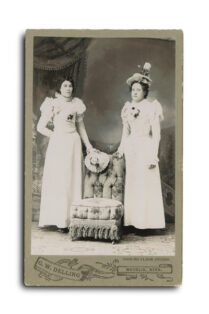
If these matchmaking ads for women seeking a husband from 1877 were posted online today, I suspect they’d go viral.
“The people say that I am a good neighbor; a nice housekeeper, good cook and fine manager, always clean and neat, fond of home and children, and try to make home the happiest place on earth; am a widow; American, age 43, weight 120, height 5 feet 4 inches, blue eyes, brown hair, good education; have $500 personal property; object matrimony.”
“Here I am boys, all the way from Texas, a black-eyed maiden of 30 years with dark hair, a brunette type, weight 115, height 5 feet 4 inches, nationality German, religion Protestant, college education and piano player; wish to correspond with businessmen, Western men preferred, between the age 40 to 45. Will answer all letters.”
To learn more about the serious business of finding a husband or wife by mail in the wide-open days of the Old West read Object Matrimony: The Risky Business of Mail-Order Matchmaking on the Western Frontier.
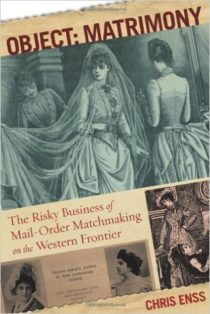
I'm looking forward to hearing from you! Please fill out this form and I will get in touch with you if you are the winner.
Join my email news list to enter the giveaway.
"*" indicates required fields

“I am a man of wealth and position,” said the widower Shyon Brane to the marriage broker, “and I seek a suitable mate. She must be handsome, clean, economical, industrious, and virtuous, a good cook, she must be a thrifty buyer, a capable housekeeper, and not easily stressed. She must know something of music and arts, dance well and be able to discourse intelligently on history and philosophy withal, she must be cheerful and of affectionate disposition.”
“Oh,” said the marriage broker, “you’ve come too late. One thousand years ago there was such a paragon but the gods took her to keep house for them. There is no wife for you, but the employment agency can supply you with a dozen domestics who, in a measure, may meet your demands.”
To learn more about the serious business of finding a husband or wife by mail in the wide-open days of the Old West read Object Matrimony: The Risky Business of Mail-Order Matchmaking on the Western Frontier.

I'm looking forward to hearing from you! Please fill out this form and I will get in touch with you if you are the winner.
Join my email news list to enter the giveaway.
"*" indicates required fields